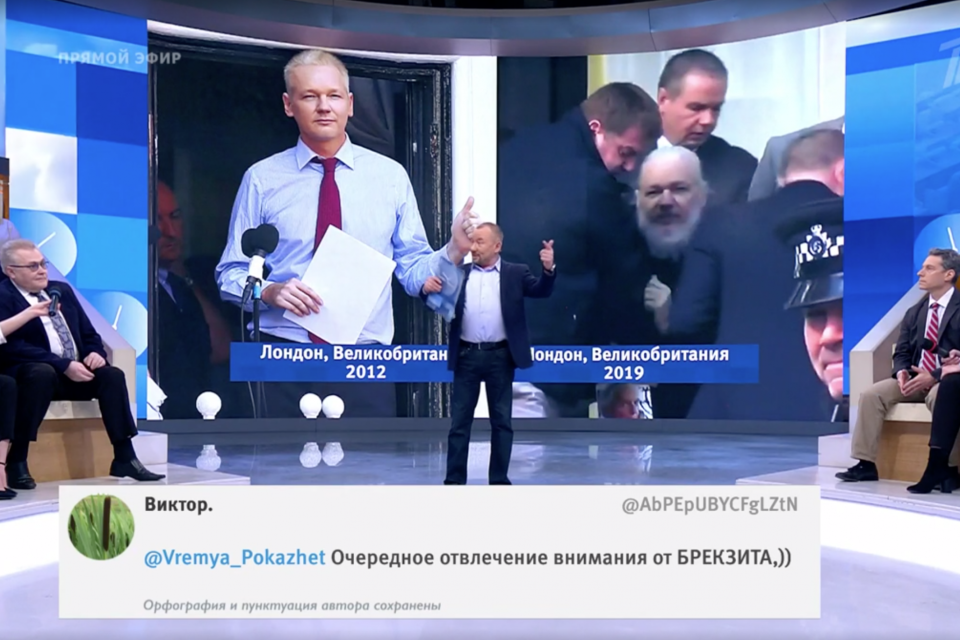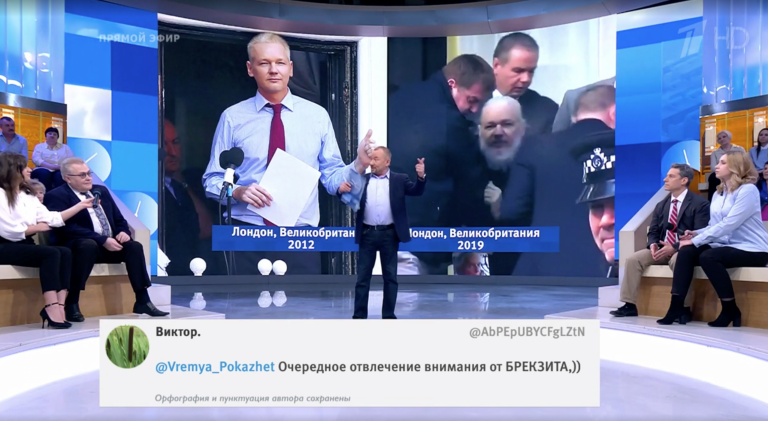‘They have the cheek to lecture us about freedom of the press?’: Russia responds to Julian Assange arrest with defiance
In the 24 hours since British police arrested Julian Assange outside the Ecuadorian embassy, Russia has shown a defiant and mocking face to the west.
Speaking at his daily press conference on Friday, Kremlin spokesman Dmitry Peskov said the WikiLeaks founder was an “independent informer” who was being “persecuted”.
“From our point of view, [the arrest] does not correspond with the ideals of free media or their immunity,” he said.
Julian Assange and Russia have long faced accusations of collaboration – selectively releasing information that compromises Russia’s enemies.
US security services assert Russian hackers were responsible for obtaining emails that compromised Hillary Clinton’s 2016 presidential election bid and ended up on Assange’s WikiLeaks.
In 2012, Assange also hosted a talk show on Russia Today (now RT), the English language channel funded by the Kremlin.
But Russia and WikiLeaks have denied accusations of collaboration. In today’s conference, Mr Peskov described the claims of cooperation as “a conspiracy theory”.
Throughout Thursday and Friday, Russian propaganda channels on TV and in print flagged what they described as “western hypocrisy” over Assange’s detention.
The Time Will Tell talk show devoted a large part of its Thursday programme to the detention. What had happened was a “personal and political tragedy,” host Artyom Sheinin said; an “injustice that touched everyone”.
Two pictures appear on screens behind the host – one showing a fresh-faced Australian whistleblower from 2012, and another showing the aged, bearded outlaw who was dragged from the Knightsbridge embassy on Thursday.
Mr Sheinin told his audience that the footage of Assange’s arrest was available only thanks to a Russian TV crew.
“Everyone was silent apart from RT!” he said. “And they have the cheek to lecture us about press freedom!”
Margarita Simonyan, RT’s channel’s combative editor in chief, said that the arrest of her former employee was proof that “hypocrisy had prevailed”.
“History will remember Assange as one of the greats, as a visionary,” she said. “He knew he would be extradited and that lots of awful things would be waiting for him – right up to the death penalty.”
Ms Simonyan was not alone to suggest Assange was in danger of execution following extradition to the United States. Both of Channel One’s main talk shows, and most of the loyalist press repeated such assertions.
Ecuador and the United Kingdom have reportedly obtained assurances from Washington that the US would not press for the death penalty.

